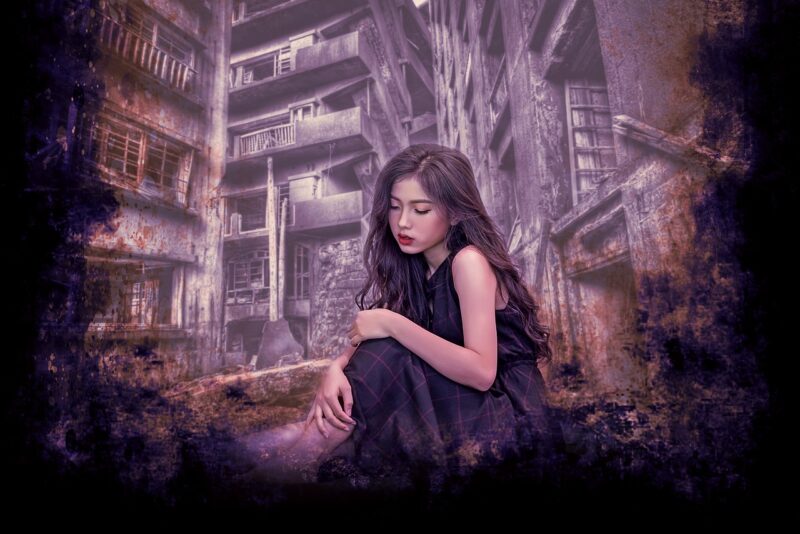Why We’re Fascinated by the End of the World and Zombie Takeovers
November 18, 2024

The end of the world has long been a captivating topic, from ancient prophecies to modern apocalyptic fiction. The allure of catastrophic events, whether through natural disasters, nuclear fallout, or more fantastical scenarios like zombie invasions, taps into deep-rooted fears and societal anxieties. In an age where anxiety about the future is rampant, our intrigue with apocalyptic themes provides both entertainment and an avenue for exploration of our values, fears, and hopes.
—
### 1. A Reflection of Our Societal Fears
Sociologists argue that apocalyptic narratives underline collective fears about societal collapse. In times of political unrest, pandemics, or environmental crises, we find ourselves drawn to stories that mirror these anxieties. Zombie fiction, in particular, showcases not only the chaotic nature of societal breakdown but also the inner conflicts of humanity.
For example, George Romero’s classic **Night of the Living Dead** is often interpreted as a commentary on race relations and the breakdown of social order during the civil rights movement. This kind of storytelling delves into how humans react under extreme pressure and questions the very fabric of civilization.
—
### 2. The Thrill of Survival
Survival is a common theme in end-of-the-world narratives, appealing to our primal instincts. In a zombie apocalypse, the struggle for survival becomes central, making stories about it exciting and relatable. These tales allow us to explore what we would do if placed in untenable situations.
Characters often face dilemmas that test their morals, challenging the audience to ponder their own reactions. Would you sacrifice a friend for the greater good? Would you trust a stranger? In a world devoid of laws and morals, survival instincts kick in, creating intense drama and an emotional connection to the narrative.
—
### 3. Escape from Reality
In today’s fast-paced world filled with challenges—political tensions, climate crises, and economic uncertainties—apocalyptic narratives provide a temporary escape from reality. They offer a chance to envision a world where the rules are different, allowing people to lose themselves in fantastical universes unbound by ordinary life constraints.
End-of-the-world scenarios serve not just as thrilling entertainment but as spaces for our imaginations to breathe and blossom. Series like **The Walking Dead** or movies like **World War Z** offer audiences both an immersive experience and the excitement of substituting our mundane days for radical adventures.
—
### 4. Exploring Morality and Humanity
Apocalyptic stories frequently delve into moral and ethical dilemmas. When societal structures crumble, what remains? Many narratives challenge characters (and thus the audience) to contemplate moral ambiguity.
**The Road** by Cormac McCarthy is a haunting exploration of love and morality in a post-apocalyptic world. The father-son relationship is at the heart of the story, showcasing the profound bond that defies the apocalyptic horror surrounding them. Through these lenses, we grapple with questions about what makes us human, even in the direst circumstances.
—
### 5. The Zombie Phenomenon
The ubiquitous presence of zombies in contemporary media speaks volumes about our fascination with motifs of death, the grotesque, and the uncanny. Zombies symbolize unchecked consumerism and loss of agency within modern society. Films and shows often portray the undead as mindless consumers drawn to the allure of flesh—mirroring how society critiques consumption and conformity.
Moreover, the representation of zombies allows for a cathartic exploration of mortality. By embodying fear of death and decay, they lead us to confront our thoughts about life and end-of-life realities.
—
### 6. The Power of Community
Often, end-of-the-world scenarios emphasize the power of community and relationships. In times of crisis, individuals unite, often setting aside their differences for survival. This theme resonates strongly with audiences yearning for connection, highlighting how humans are wired for social bonds.
The evolution of character relationships in series like **Z Nation** illustrates the gradual transformation of strangers into a supportive community. This idea is reassuring, reminding us that even in the bleakest conditions, we are capable of compassion, love, and collaboration.
—
### 7. A Call to Action
Interestingly, apocalyptic narratives often serve as cautionary tales, urging audiences to act in the present to avert future disasters. Environmental collapses, political unrest, and health pandemics are all realities that plague the modern age. Fictional stories like these can provoke a need to rethink our daily choices and their impact on the world around us.
By shining a light on the consequences of neglect, these tales motivate change and advocacy for responsible living. The zombie apocalypse may be a metaphor for current crises, inspiring individuals to engage with issues like climate change, health care, and social justice.
—
### Conclusion
Our fascination with the end of the world and zombie apocalypses serves as a complex mirror reflecting our collective fears, thoughts on morality, the power of community, and the urgent call for proactive change. More than just tropes of horror, these narratives offer rich explorations of human experience within a framework that allows us to process our anxieties in a safe environment. As long as there are societal fears, aspiring writers and filmmakers will continue to unveil the layers behind why we are hooked on these powerful themes, keeping the fire of curiosity burning bright in our imaginations.
—








